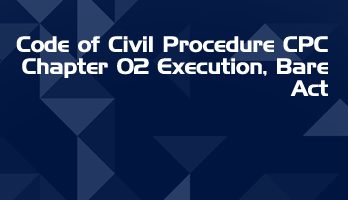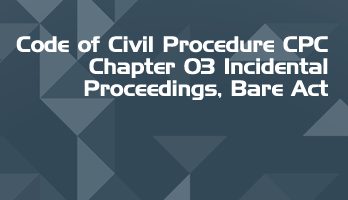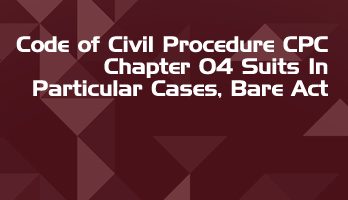A 'Bare act' is the actual legislation passed by the Parliament of India. Generally, an act sets out the high level legal and policy principles applicable to the subject matter of the law.
Most acts are accompanied by 'subsidiary legislation' such as rules, regulations, notifications and orders; which address the actual implementation detail of the act.
Free Full Course Available on LawMint's YouTube Channel
How to Land Your Dream LLB Internship in a Top Law Firm
- Part 1 - Introduction
- Part 2 - Internship Planning
- Part 3 - Internship Research
- Part 4 - Building Your Profile
- Part 5 - The Email
- Part 6 - The Resume
- Part 7 - The Cover Letter
- Part 8 - The Interview
- Part 9 - Self Development
Practical and comprehensive course, with real examples and step-by-step analysis of the complete internship application process. Check out LawMint's YouTube channel now!
Indian Divorce Act, 1869
Preamble
An Act to amend the law relating to Divorce and Matrimonial Causes
WHEREAS it is expedient to amend the law relating to the divorce of persons professing the Christian religion, and to confer upon certain Court’s jurisdiction in matters matrimonial; it is hereby enacted as follows –
Chapter I – Preliminary
Section 1 – Short title. Commencement of Act
This Act may be called the Indian Divorce Act, and shall come into operation on the first day of April, 1869.
Section 2 – Extent of Act
This Act extends to the whole of India except the State of Jammu and Kashmir. Extent of power to grant relief generally, – Nothing hereinafter contained shall authorise any Court to grant any relief under this Act except where the Petitioner or respondent professes the Christian religion, and to make decrees of dissolution, and to make decrees of dissolution, – or to make decrees of dissolution of marriage except where the parties to the marriage are domiciled in India at the time when the Petition is presented, or of nullity. or of nullity. – or to make decrees of nullity of marriage except where the marriage has been solemnized in India and the Petitioner is resident in India at the time of presenting the Petition, or to grant any relief under this Act, other than a decree of dissolution of marriage or of nullity of marriage, except where the Petitioner resides in India at the time of presenting the Petition.
Section 3 – Interpretation – clause
In this Act, unless there be something repugnant in the subject or context, –
- “High Court”. – “High Court” means with reference to any area:
- in a State, the High Court for that State;
- in Delhi, the High Court of Delhi; (bb) in Himachal Pradesh, the High Court of Punjab and Haryana up to and inclusive of the 30th April, 1967 and the High Court of Delhi thereafter;
- in Manipur and Tripura, the High Court of Assam;
- in the Andaman and Nicobar Islands, the High Court at Calcutta;
- in Lakshadweep, the High Court of Kerala; (ee) in Chandigarh, the High Court of Punjab and Haryana; and in the case of any Petition under this Act, “High Court” means the High Court for the area where the husband and wife reside or last resided together:
- “District Judge.” – “District Judge” means a Judge of a principal civil court of original jurisdiction however designated:
- “District Court.” – “District Court” means, in the case of any Petition under this Act, the Court of the District Judge within the local limits of whose ordinary jurisdiction, or of whose jurisdiction under this Act, the husband and wife reside or last resided together:
- “Court.” – “Court” means the High Court or the District Court, as the case may be:
- “Minor children.” – “minor children” means, in the case of sons of Native fathers, boys who have not completed the age of sixteen years, and, in the case of daughters of Native fathers, girls who have not completed the age of thirteen years. In other cases it means unmarried children who have not completed the age of eighteen years:
- “Incestuous adultery.” – “incestuous adultery” means adultery committed by a husband with a woman with whom, if his wife were dead, he could not lawfully contract marriage by reason of her being within the prohibited degrees of consanguinity (whether natural or legal) or affinity:
- “Bigamy with adultery.” – “bigamy with adultery” means adultery with the same woman with whom the bigamy was committed:
- “Marriage with another woman.” – “marriage with another woman” means marriage of any person, being married, to any other person, during the life of the former wife, whether the second marriage shall have taken place within India or elsewhere:
- “Desertion.” – “desertion” implies an abandonment against the wish of the person charging it; and
- “Property.” – “property” includes in the case of a wife any property to which she is entitled for an estate in remainder or reversion or as a trustee, executrix or administratrix; and the date of the death of the testator or intestate shall be deemed to be the time at which any such wife becomes entitled as executrix or administratrix.
Important Central Acts in Regional Languages
Legislative department website also features regional language versions of several important Central Acts.
Free Full Course Available on LawMint's YouTube Channel
How to Land Your Dream LLB Internship in a Top Law Firm
- Part 1 - Introduction
- Part 2 - Internship Planning
- Part 3 - Internship Research
- Part 4 - Building Your Profile
- Part 5 - The Email
- Part 6 - The Resume
- Part 7 - The Cover Letter
- Part 8 - The Interview
- Part 9 - Self Development
Practical and comprehensive course, with real examples and step-by-step analysis of the complete internship application process. Check out LawMint's YouTube channel now!












